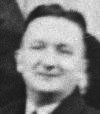North side/south side
There is a northside/southside thing in Dublin city. The southside is traditionally the posh side and many southsiders consider the northside to be inhabited by tribes of subhuman proles.
Over time this clear distinction has been eroded somewhat by (i) the public authorities locating tracts of public housing on the southside, (ii) the existence of some posh areas on the northside, (iii) the emergence of an east/west split, and (iv) the inevitable movement south of some northsiders in search of status, or property values, or just to get away from their savage neighbours.
 I always knew I had a foot in both camps as I started on the northside (Howth), spent half my life on the southside (Orwell Gardens and Ballybrack), and returned to the northside when I got married (Raheny). I now find that one of my great grandfathers appeared on the northside (Glasnevin) around 1860, while another great grandfather appeared on the southside (Thomas St.)around the same time.
I always knew I had a foot in both camps as I started on the northside (Howth), spent half my life on the southside (Orwell Gardens and Ballybrack), and returned to the northside when I got married (Raheny). I now find that one of my great grandfathers appeared on the northside (Glasnevin) around 1860, while another great grandfather appeared on the southside (Thomas St.)around the same time.Various counties
My mother had always told me, or at least had given me the impression, that her family, on her mother's side, went way back in Dublin. However, my probings revealed that her grandfather came from Wicklow and her grandmother from Laois (Queen's County in those days).
Equally, on my father's side, I knew he was born in Ballyhaunis in Co. Mayo, and thought his father might have been from Tipperary as Dwyer was a Tipperary name. However, I now find that one of his grandfathers was from Co. Limerick, and the other from Co. Sligo.
If we count temporary residences, we can add: Longford and Offaly. Mind you, it's still only eight out of twenty six counties.
Republican/BA/RIC
Another division in Irish society is between those with republican credentials and those more closely associated with the (former British) establishment.
 In this respect I am in deficit on the republican side where my only (uncorroborated) claim to fame is my uncle having been a runner for Michael Collins in London – and for this revelation I rely entirely on one of my country cousins.
In this respect I am in deficit on the republican side where my only (uncorroborated) claim to fame is my uncle having been a runner for Michael Collins in London – and for this revelation I rely entirely on one of my country cousins.On the other side I have: relatives who fought, and died, in the British Army (including at the Somme in 1916); constables in the Royal Irish Constabulary; and a bootmaker and a caterer for the British Army.
The balance is pretty definitely one way.
Genes
And what of the gene pool?
 While I can list the various illnesses which are stated to have killed my ancestors and their immediate families, I am not sure how relevant some of these are to the gene pool. Anyway, here's a recital from death certs in my possession :
While I can list the various illnesses which are stated to have killed my ancestors and their immediate families, I am not sure how relevant some of these are to the gene pool. Anyway, here's a recital from death certs in my possession :acute peretonitis; asphyxia – result of immersion; asthma; bronchitis; cancer; cardiac failure; coronary thrombosis; exhaustion; gout; infantile cholera; inflammation from teething; parkinsons; tuberculosisA number of these conditions are cited in multiple cases.
Tradesmen/clerks
The variety of career backgrounds also proved interesting. I had known about some of them but the full range surprised me. Many of these also have multiple instances:
ancestors
bootmaker; carpenter; civil servant; clerk; constable; domestic servant; farmer; labourer; manager; salesperson; shopkeeper
family
air hostess; auctioneer; barperson; businessman; carer; civil servant; comptometer instructor; cooper; counsellor; court clerk; dressmaker; engineer; hairdresser; journalist; lawyer; machinist; priest; professor; receptionist; soldier; teacher; undertaker
"Another division in Irish society is between those with republican credentials and those more closely associated with the (former British) establishment."
ReplyDeleteWho gives a damn anyway? None of us existed before 1940!
Some of us didn't exist even after 1940!
ReplyDelete